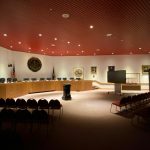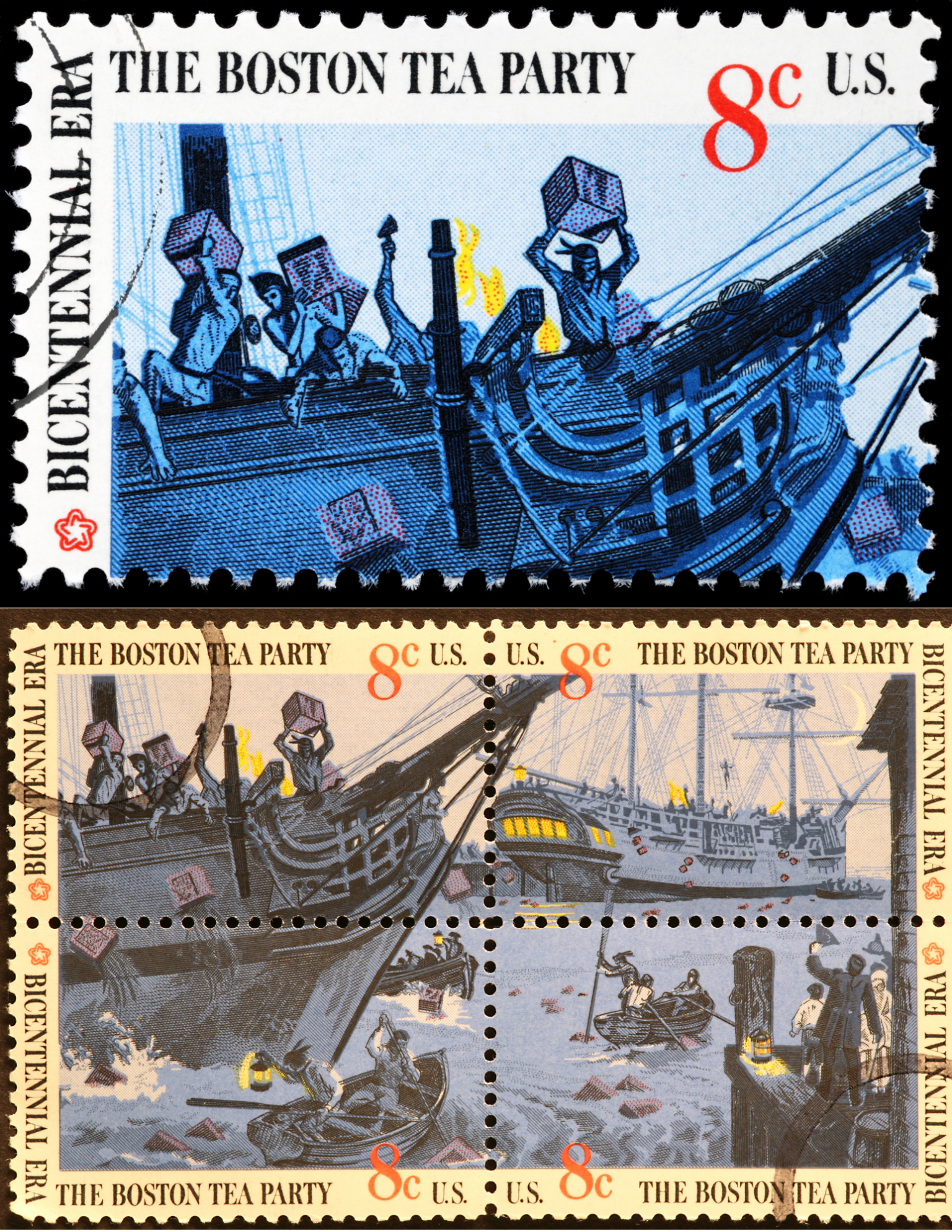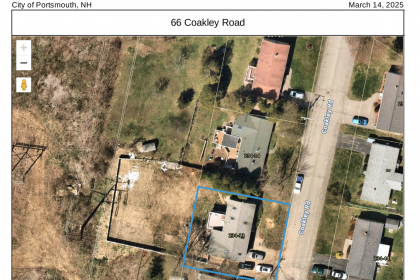By Buck Fuller
To quell rumors, let’s state at the outset that Portsmouth had no Tea Party. On December 16, 1773, Boston did. The Sons of Liberty dumped about 92,000 pounds of tea into Boston Harbor from three ships, the Dartmouth, Eleanor and Beaver. This was worth about $1 million in today’s dollars. A fourth ship, the William, had shipwrecked on Cape Cod and never reached Boston. Such were the uncertainties of ocean shipping during the early winter months.
In October 1773, some 250 tons of tea left London, destined for Charleston, SC, Philadelphia, PA, New York City and Boston. These four cities communicated loosely with each other through patriots such as Paul Revere, who let New York and Philadelphia know that Sam Adams and his brethren planned to dump tea into the Harbor in response to actions by Massachusetts’ Governor Thomas Hutchinson.
Of the other three cities, only Philadelphia could organize a persuasive response that caused its tea-laden ships to not dock, but rather turn around and sail back to London. New York and Charleston accepted the tea shipments and allowed the tea to clear Customs and be taxed.
What Was this Tempest All About?
There were at least three main issues at play at this time. Importantly, there are some echoes of these issues in Portsmouth today.
Corporate Cronyism
The East India Company had fallen on hard times and sought Parliament’s help in keeping it from financial ruin. Among other challenges, the company was challenged by American smuggling. The smuggling threatened the markets’ prices. The Tea Act, passed by Parliament in May 1773, allowed for undercutting the price of tea sold by the smugglers. This protected the company’s market position and profits.
Only local tea agents, appointed by the Crown through local officials, truly made sizeable profits. These individuals were disliked by the Sons of Liberty for they served as the distribution network and tax collectors for the Crown. Yet, their appointments were a form of patronage for the local governments, conferring favored status and revenue on these selected persons.
Parliamentary Overreach
Taxation without representation is a familiar cause for stirring the passions of the Sons of Liberty, leading to the Revolutionary War. Not only was there no colonial representation in Parliament to argue against increasing taxes on the colonies, but Parliament’s attitude towards the colonies was often one of arrogance and dominance.
After the Boston Tea Party, Parliament passed the Boston Port Act that essentially established a blockade against all ocean-bound trade coming into or out of Boston. This had catastrophic economic effects on Boston. Parliament meant to teach it a lesson. The blockade would be lifted only after the East India Company was repaid the value of the lost tea.
Ironically, surrounding colonies responded by delivering critical produce and livestock to Boston to help counter the effects of the blockade, thus knitting together the colonies with Boston and helping to form a tighter correspondence up and down the Seaboard.
Revenue
A uniting sentiment regarding the Tea Act was that it was “unconstitutional” since it was raising revenue without the consent of those being taxed. But the Crown had spent heavily during the Seven Years War (otherwise known as the French and Indian War in North America) and its treasury was seriously depleted.
Shouldn’t the colonies contribute directly to the effort to replenish the Crown’s finances? After all, the colonies had benefitted directly in defeating the French and their Indian allies, eliminating the threats of Indian predators to the north and west of the colonies and removing the French presence across eastern Canada.
Positions in the colonies were mixed regarding the Crown’s right to tax for these purposes. Some recognized the obligation of the colonies to repay the Crown. After all, British troops remained on the western boundaries to help enforce the peace after 1770. But there was lingering ill will between the British commanders and the colonist troops and citizenry. These complicated the Crown’s ability to raise monies from less than willing citizens.
Fallout
As the impact of the Boston Port Act was felt in Boston and in the supporting communities throughout New England, communication among the colonialists increased in 1774. Almost a year after the Boston Tea Party, Paul Revere rode to Portsmouth to warn the local Patriots that the British had just set sail from Boston to supplement the six British soldiers at Fort William and Mary, located at the mouth of the Piscataqua River in New Castle. Today, Fort William and Mary is called Fort Constitution.
Before the British could arrive, the local group stormed the Fort on December 14, overtook the British detachment and seized the garrison’s gunpowder. On December 15th, the same group raided the Fort again and seized numerous cannon. All these munitions were stored around the countryside and were ultimately brought in time for fighting the British at Concord and Lexington in April 1775, and Bunker Hill in June 1775.
This was an important capture of much-needed materials for our early rebellion.
Lessons
Colonialists are a sensitive lot. They don’t like to be treated disrespectfully. They don’t like to be taken for granted. And they don’t like to be used. Finally, they don’t like to be taxed, blockaded, or punished when they are standing up for what they feel are their God-given rights.
It is the same in modern-day Portsmouth. A dozen years ago, the City lost a fighter, Evelyn Sirrell. She was someone who was as strong-willed as the Patriots and who took personally any obstacle, or any burden faced by her followers. Maybe she wasn’t quite a Son or Daughter of Liberty, but she didn’t care for high taxes applied to her constituents. She served as Mayor of Portsmouth, leaving office in 2005.
Imagine where she would have been regarding the Tea Act and then the Boston Port Act! There’s no doubt she was on the side of the little guy and was populist at heart. She was a fighter who would stand up for citizens and fight against City excesses. Maybe she and Sam Adams might have seen eye to eye.
And what would she say today as the City’s budget is ballooning, employee count in Administration is growing like crazy and City Councilors seemingly having lost touch with the taxpayer and citizen? She might see today’s City government as being just as arrogant as Parliament was in 1773 and 1774.
Today we may not need a Tea Party. But we do need the catalyzing effect of a solid populism to bring order back to City government, to control City management and to force financial discipline for the City’s own good. Where are Mayor Sirrell or the Sons of Liberty when you need them?










